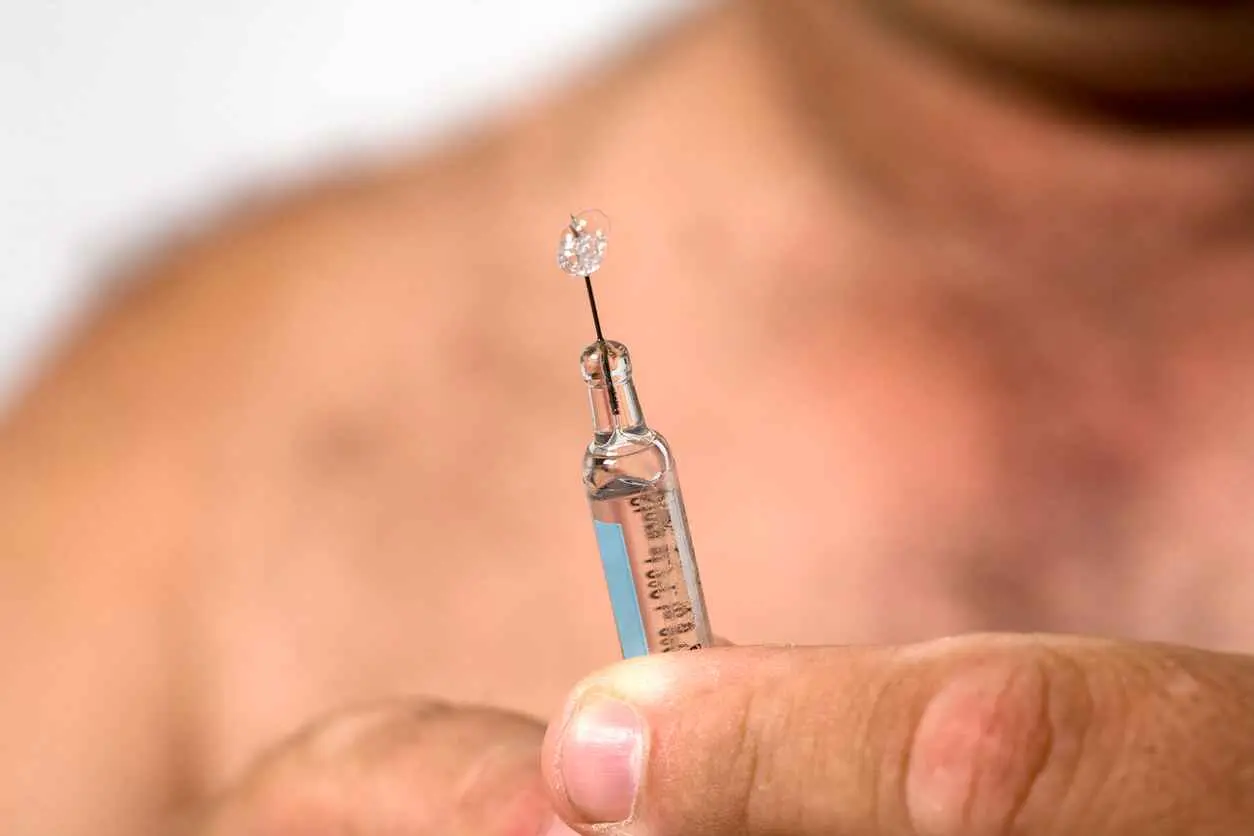
Guide To Men's Healthy Ageing: A Comprehensive Resource For Every Stage
Guide To Men's Healthy Ageing: A Comprehensive Resource For Every Stage
What Are the Keys to Healthy Ageing for Men?
Healthy ageing in men requires regular exercise, a balanced diet, quality sleep, and mental wellness. Staying proactive with regular health checks and addressing hormone imbalances, such as low testosterone, can help maintain energy, strength, and overall well-being throughout all decades.
Healthy Ageing In Men
Healthy ageing for men means living well for longer, not just living longer. By taking care of your body and mind at every stage of life, you can feel better, stay active, and avoid many common health issues. Eating well, staying active, getting enough sleep, and visiting your doctor regularly can all help you enjoy life more as you age.
Today, people are living longer than ever. But it is not just about how many years you live. It is about how good those years are. Many men do not think about their health until something goes wrong. This guide will help you take small, smart steps now so you can stay strong, happy, and independent as you age.
We will examine what men need to focus on in each stage of life, from the twenties to the seventies and beyond. You will learn how to build healthy habits, what foods and exercises are best, and which health checks you might need. No matter how old you are, it is never too early or too late to start taking care of your health.
Foundations of Healthy Ageing
Healthy ageing starts with everyday choices. The way you live now has a big effect on how you will feel in the future. While some health problems are influenced by family history, most of your long-term health is shaped by your lifestyle habits. This means that what you eat, how much you move, how well you sleep, and how you manage stress all matter significantly.
Five key areas support healthy ageing:
1. Eating Well
A healthy diet gives your body the fuel it needs to grow, heal, and stay strong. Try to eat a variety of fruits, vegetables, whole grains, lean protein sources (such as chicken, eggs, or beans), and healthy fats (like olive oil or nuts). Drinking plenty of water is also essential. Try to limit sugary snacks, fizzy drinks, and fried or processed foods.
2. Staying Active
Moving your body helps you maintain strong muscles, a healthy heart, and a healthy weight. It also helps with mood and sleep. You do not need to run a marathon—walking, swimming, cycling, or even dancing are great ways to stay fit. Aim for at least 30 minutes of activity most days of the week.
3. Getting Good Sleep
Your body needs rest to repair itself. Try to get 7 to 9 hours of sleep each night. Going to bed and waking up at the same time every day helps. Avoid screens before bed and keep your room quiet and dark for better sleep.
4. Managing Stress
Over time, excessive stress can negatively impact your heart, sleep, and immune system. Simple things like deep breathing, spending time outdoors, talking to friends, or taking quiet time to relax can help calm your mind.
5. Staying Connected
Spending time with family, friends, or joining a local group can help you feel happier and more supported. Feeling lonely or left out can impact your mental and physical health, so it is essential to stay socially connected.
By focusing on these five areas, you can establish a solid foundation for a long and healthy life.
Men’s Healthy Ageing Priorities by Age Group
|
Age Group |
Focus Areas |
Common Health Risks |
|
20s |
Fitness, sexual health, mental health |
Testicular cancer, STIs, substance misuse |
|
30s |
Stress management, muscle maintenance, hormone health |
Fertility decline, diabetes, and weight gain |
|
40s |
Cardiovascular health, routine screenings |
Heart disease, prostate changes, depression |
|
50s+ |
Joint health, hydration, disease screening |
Osteoarthritis, colon cancer, and low testosterone |
Your 20s: Men In Early Adulthood
Your early 20s are often seen as a time for partying and living life to the fullest, which can sideline health concerns. This approach, however, can have both immediate and long-term health consequences. It's a misconception to believe that damage during this time can easily be reversed later. Enjoying life is important, but it's equally crucial to look after your future self from the start.
Here are some top health tips for those in their 20s:
Acknowledge Your Vulnerability:
Despite the vitality of youth, it's a mistake to consider oneself invulnerable to health issues. The lifestyle choices you make now, including diet and exercise habits, can significantly influence your health in later years. A 2012 study highlighted that young men in their 20s who led substantially healthy lifestyles, with regular exercise and balanced diets, significantly reduced their risk of heart disease in the future.
Moderate Alcohol Intake:
A significant lifestyle improvement is to reduce alcohol consumption. Excessive drinking can impair judgment, coordination, and speech in the short term. It may lead to serious health problems such as hypertension, strokes, liver diseases, and various cancers in the long run. Studies have shown that a notable percentage of individuals exceed the recommended weekly alcohol intake, increasing their risk of chronic illnesses.
Prioritise Sexual Health:
With people in their late 20s being among the most sexually active, it's crucial to maintain sexual health. This includes getting vaccinated against HPV and attending regular screenings for STIs. Unsafe sexual practices are prevalent, and with a high rate of sexually active individuals contracting HPV at some point, vaccination becomes an essential preventive measure against certain cancers caused by HPV in males.
By adopting these practices, individuals in their 20s can make significant strides toward safeguarding their health for the years to come.
Medical Conditions To Be Aware Of
In your 20s, it's vital to be aware of several medical conditions that could affect you, both now and in the future. Here are some key health concerns to keep an eye on:
Testicular Cancer:
This is a significant concern for young men, especially those between 15 and 49 years old, where it's the most prevalent form of cancer. Although it affects about 1 in 260 men during their lifetime, the survival rate is high, with over 98% living for five or more years post-diagnosis, given early detection and treatment. Regular self-examinations, at least once a month, are crucial for early detection.
Diabetes:
Poor lifestyle choices, such as an unhealthy diet and lack of exercise, can lead to diabetes. Key symptoms include excessive thirst, frequent urination, blurry vision, and extreme fatigue. Young men, particularly those who are overweight, should be vigilant for these signs.
Drug and Alcohol Addiction:
A significant number of adults seek help for substance abuse, with a notable portion being men in their 20s. While the peak age for treatment is slightly higher, it's essential to recognise that addiction often stems from long-standing mental health issues. Being mindful of the risks associated with excessive alcohol consumption and drug use is crucial.
Skin Cancer:
Young men should also be cautious about actinic keratosis (AK), a type of pre-cancer characterised by small, scaly white bumps. While not as severe as melanoma, AKs can be a precursor to more serious skin cancers, so paying attention to any changes in moles or skin spots is essential.
Maintaining awareness and taking proactive steps towards health can make a significant difference in the long term. Regular check-ups and being attentive to changes in your body are essential to early detection and prevention of these and other health issues.
Your 30s: Men In Adulthood
Entering your 30s can feel like a fresh chapter, akin to a second round of your 20s, yet it's accompanied by subtle shifts in your body's physiology and metabolism. As you navigate this decade, it's common to experience a slower recovery from injuries and a more challenging battle against weight gain. This is partly due to changes in muscle mass, metabolic rate, and hormonal fluctuations.
However, this period also brings an opportunity to reinforce and adopt healthier lifestyle habits that can significantly impact your long-term well-being.
Top Health Tips For Men In Their 30s
1. Managing Stress Levels
During your 30s, you might feel pressured to have everything figured out, especially in your career. This can lead to a lot of stress, particularly from work. Research has shown that many people often feel stressed due to their jobs. This kind of stress isn't just about feeling overwhelmed; it can also lead to more serious issues like anxiety and depression.
Managing stress is crucial at this stage in your life. Incorporating mindful relaxation techniques into your daily routine can make a big difference. Simple practices such as deep breathing exercises and yoga can significantly improve mental well-being. Additionally, ensuring you unwind and rest after a busy day can help maintain your mental and physical health. Remember, managing stress levels is essential for a balanced and healthy lifestyle.
2. Make Resistance Training Your Priority
As men hit their 30s, it's common to start losing muscle mass, about 3-5% every ten years. This natural part of ageing is called sarcopenia. It might be tough to accept, especially for those who love working out and staying fit, because it means they'll have to put in more effort to maintain their muscle.
It's a good idea to focus on strength training that uses slow, controlled movements to keep as much muscle as possible. This type of exercise is gentler on the joints and allows you to keep up the intensity of your workouts. So, even though it might get a bit harder to stay in shape as you age, adjusting your workout to include these slower exercises helps maintain your muscle mass.
3. Look Out For Your Testosterone Levels
Testosterone levels in men usually reach their highest during adolescence and then begin to decrease by about 1% each year, starting around the age of 30. This decline varies from person to person, but it's essential to be aware of the signs that could indicate a rapid drop or low levels of testosterone, often referred to as Low T.
Common symptoms to watch out for include:
- Difficulty concentrating or "brain fog"
- A drop in sexual desire
- Trouble sleeping
- Development of enlarged breasts
- Problems achieving or maintaining an erection
- Constant tiredness
- Noticeable loss of hair
- Decrease in muscle mass and increase in body fat
Being mindful of these symptoms is crucial, as they can affect your overall well-being and quality of life. If you notice these changes, consulting a healthcare professional for advice and possible treatment options might be a good idea.
Key Health Concerns To Monitor
Infertility
Infertility becomes more of a concern for men as they age, especially after reaching their mid-30s. Studies have shown that both the quality and quantity of sperm tend to decline around this time. Apart from age, other significant factors, such as overall health and genetic predispositions, can also impact male fertility. It's crucial to maintain good health and seek medical advice if you have concerns about your fertility or are facing challenges in conceiving.
Heart Problems
Heart health is paramount for ageing well. The heart, arguably the most critical muscle in the body, requires more attention as you enter your 30s. With metabolism slowing down approximately 10% each decade, the risk of gaining extra weight increases, which can elevate cholesterol levels and put additional pressure on the heart.
Eating a balanced diet, engaging in regular physical activity, and ensuring proper hydration are essential to support heart health. These habits can help boost metabolism, manage blood pressure, and reduce the risk of heart disease, making them vital practices in maintaining overall health as you age.
Your 40s: Men In The Middle Age
As you enter your forties, it becomes crucial to prioritise eliminating unhealthy habits to maintain optimal health. Your body may not feel as resilient as it did in earlier years.
In your forties, many men begin to observe visible signs of ageing, such as wrinkles and loss of skin elasticity. However, it's the internal changes that carry the most significance. With age comes wisdom, underscoring the importance of prioritising health and well-being.
Helpful Health Tips For Men In 40's
Keep An Eye On Your Waistline:
Taking care of your heart is super important in your 40s. Heart disease is a big problem for people in this age group. To stay healthy, it's great to be active and keep your waist size in check. Eating healthy is vital. Try to eat lots of fruits, veggies, and whole good stuff like fibre. Adults should aim for at least 30g of fibre daily, but most only get about 18g. So, eat more things like broccoli, whole grains, and beans. And, keep up with exercises that make your muscles work, like lifting weights.
Always See The Doctor:
When you hit 40, it's a good idea to see your doctor regularly every five years for a check-up. But also, go to the doctor if something doesn't feel right, especially if it's about your heart or prostate, which can start to cause problems as you get older. Take advantage of these visits or be bold about talking to your doctor; they're there to help you.
Look After Your Mental Health:
It's not just your body that needs care; your mind does, too. Many guys don't like talking about their feelings, but it's essential. With quite a few men facing mental health issues like anxiety or depression, it's crucial to have someone to talk to and to seek help if you're struggling. Taking care of your mental health is as important as caring for your body.
Medical Conditions To Look For When In 40s
When you're over 40, it's crucial to keep an eye out for specific health issues:
Depression:
Mental health is a big concern for men, especially as they age. Studies have shown that men in their late 40s can have very high rates of suicide. If you're feeling down or thinking about harming yourself, it's essential to get help. Many services are ready to support you, like helplines where you can talk to someone who understands.
High Blood Pressure:
Many adults have high blood pressure, and it's more common in men. As you age, checking your blood pressure regularly is even more critical. To help keep it healthy, drink less alcohol and caffeine, eat less salt, practice stress-reducing techniques like deep breathing, choose more nutritious snacks and consider certain supplements.
Prostate Cancer:
This is a common cancer for men, and the risk goes up as you age. If you're in your 40s, it's good to know about the early signs, like needing to go to the bathroom more urgently, feeling like you haven't fully emptied your bladder, or having trouble when you pee. If you notice any of these, talk to your doctor.
Taking care of your health by being aware of these issues and getting regular check-ups can make a big difference.
Men In Their 50s: Mature Men
Being mature doesn't mean you can't be as fit and healthy as someone younger. You may need to put in more effort now, but it's even more worthwhile.
Age is just a number. Considering the average life expectancy for men was around 78.7 years in 2020, if you're in your 50s, you likely have many years ahead of you. So, investing in your health can help you fully enjoy those years.
Valuable Tips For Men In 50 And Beyond
Taking care of your health is vital at any age. Here are some top tips to help you stay in great shape:
Drink Plenty Of Water:
Eating healthy is essential, but so is drinking enough water. It helps keep your body temperature right and ensures your organs work well. As you get older, it's even more important to stay hydrated. Even a little bit of dehydration can slow down your metabolism.
Choose The Right Exercises:
Staying active is crucial no matter your age. But as you age, it's more about staying flexible and healthy than looking a certain way. Suitable activities include light cardio, like swimming or walking, and you should keep doing strength training to help stop muscle loss. Stretching and exercises that strengthen your core are also great for keeping you flexible and moving easily.
Keep Your Mind Sharp:
Just like you exercise your body, keeping your brain active is good, too. Engaging in puzzles and games that challenge your thinking can help keep your mind sharp. Although we're still determining the extent of their benefits, if you enjoy these brain games, continue to play them.
Remember, there is always time to start taking better care of your health, whether it's your body or brain.
Medical Conditions To Look For When In 50s And Beyond
As you get older, there are a few health issues to keep an eye on:
Osteoarthritis:
This is a common joint issue, particularly for individuals over 65. Approximately half of the people in this age group have it, which becomes more common with age. Family history or injuries can cause it, leading to joint pain, stiffness, and reduced mobility.
Respiratory Problems:
Taking care of your lungs becomes increasingly important as you age. Conditions like asthma, lung cancer, and COPD (a lung disease that makes it hard to breathe) can become more of a concern. Many older adults might have lung problems without even knowing it.
Colon Cancer:
Starting at age 50, getting checked for colon cancer is a good idea. It might not be fun, but it's essential because colon cancer is a common cancer in men. The risk increases as you age. Look out for signs such as blood in your stool, stomach pain or bloating, or changes in how often you need to use the bathroom.
Staying aware of these conditions and getting regular check-ups can help detect any problems early, which can significantly contribute to maintaining good health.
Health Focus Areas by Age
|
Age Group |
Health Focus Areas |
Common Health Risks |
|---|---|---|
|
20s |
Sexual health, mental health, lifestyle |
STIs, substance use, testicular cancer |
|
30s |
Stress, fitness, hormone balance |
Weight gain, fertility, cardiovascular changes |
|
40s |
Screenings, heart health, prostate care |
Hypertension, prostate issues, mental health decline |
|
50s+ |
Mobility, memory, chronic conditions |
Osteoarthritis, colon cancer, low testosterone |
Healthy Ageing FAQs for Men
What is healthy ageing for men and why does it matter?
Healthy ageing for men involves staying physically active, mentally sharp, and emotionally balanced as you age. It is about increasing your healthspan, not just your lifespan. By focusing on prevention and daily habits, men can enjoy a better quality of life in their later years.
How can men stay healthy in their 30s
Men in their 30s should prioritise establishing strong health habits, such as maintaining a balanced diet, exercising regularly, and effectively managing stress. Regular check-ups, heart health checks, and maintaining a healthy weight are key components of healthy ageing tips for men in their 30s.
What are the best foods to slow down ageing in men?
Foods that support men's ageing well include leafy greens, berries, fatty fish, nuts, whole grains, and olive oil. These support heart health, brain function, and reduce inflammation. Eating a Mediterranean-style diet is one of the best anti-ageing nutrition tips for men.
How does exercise support healthy ageing in men?
Regular exercise helps men maintain muscle mass, bone strength, and a healthy heart. It also improves balance, boosts energy, and supports mental health. Staying active is one of the most essential healthy ageing strategies for men over 40.
When should men start getting regular health screenings?
Men should begin basic screenings like blood pressure and cholesterol checks in their 30s. In their 40s and beyond, they should add prostate exams, colon cancer screening, and diabetes tests. Preventive health check-ups are a key part of men’s healthy ageing routines.
Can stress speed up ageing in men?
Yes, long-term stress can impact sleep, increase blood pressure, and compromise the immune system. It may also lead to unhealthy habits like overeating or smoking. Managing stress is an important part of a healthy lifestyle for ageing men.
What are the signs of unhealthy ageing in men?
Some signs of poor ageing include tiredness, memory loss, trouble sleeping, joint pain, and frequent illness. Losing height or experiencing balance problems may also occur. Spotting early signs of ageing in men can help you take action and get support.
How can men boost brain health as they age?
To keep the brain healthy, men should maintain mental activity, consume brain-friendly foods such as oily fish and nuts, exercise regularly, and get sufficient sleep. Staying social and learning new skills are also great brain health tips for men over 50.’
Final Thoughts
In summary, each stage of life brings new health needs and opportunities—from the energy and drive of your 20s to the experience and insight of your 50s and beyond. Prioritising your well-being through healthy lifestyle choices, regular check-ups, and awareness of potential health risks is essential to ageing with strength and purpose.
By focusing on balanced nutrition, regular physical activity, maintaining strong mental health, and staying proactive about medical care, you can enjoy a higher quality of life and increase your chances of living well for a longer period. Healthy ageing is not about perfection—it is about consistency, self-awareness, and the proper support.
At Androgenix, we’re here to guide and support you at every stage of your journey. Whether you’re looking to optimise your hormones, improve your energy levels, or simply feel your best as you age, our expert team is committed to helping you achieve lasting results. Remember, investing in your health today sets the foundation for a stronger, more fulfilling tomorrow.


